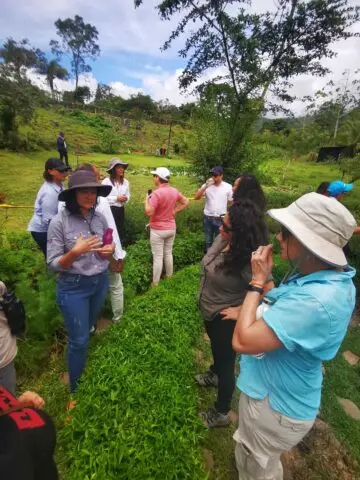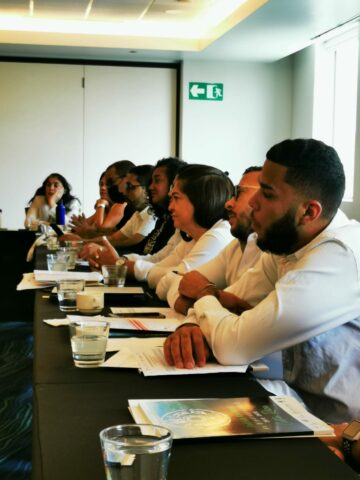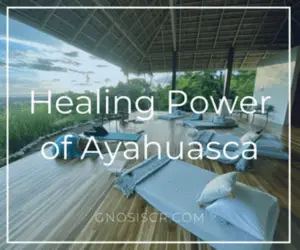Costa Rica ensures the responsible use of genetic and biochemical resources of biodiversity by granting the ABS badge to companies and institutions that obtain economic benefits from these resources.
ABS is part of the Convention on Biological Diversity (CBD), which establishes rules for the use and distribution of benefits from the use or commercialization of genetic resources and their derivatives. The distinction seeks to guarantee the availability and access to these resources with practices that protect genetic diversity, necessary for the health of ecosystems and human life, and so far only Costa Rica has successfully developed it.
Since 2018, the National Commission for Biodiversity Management (CONAGEBIO) attached to MINAE, is in charge of delivering the permit for the use of the badge to all those companies or institutions that wish to market, nationally or internationally, products made with genetic or biochemical resources of the country and that they undergo the evaluation process that certifies that they comply with national regulations.
A source of genetic and biochemical resources
“The biodiversity of our country serves as a source of genetic and biochemical resources that are used for different purposes, such as in the pharmaceutical, biotechnology, food, cosmetic and gardening industries,” explains Angela González Grau, executive director of CONAGEBIO.
González Grau adds: “Through the ABS label, we not only ensure that the resource is not exhausted, but also that all the actors involved in the production chain receive a fair and equitable benefit.”
Some products that already bear the distinction are Brontox cough syrup (Laboratorios Lisanatura) and the Native Bees Program (Alianza Campesina Flora Nueva), which benefits small and medium-scale producers in different communities in the country. Likewise, Flora Nueva is an intermediary of raw materials for the Chanel brand.
The project Strengthening the application of the principles of access to genetic and biochemical resources derived from biodiversity and benefit sharing (ABS) in Costa Rica and the Dominican Republic, is executed by the German Cooperation for Development, GIZ, within the framework of the Regional Fund for Triangular Cooperation in Latin America and the Caribbean, commissioned by the German Federal Ministry for Economic Cooperation and Development (BMZ).

As part of this project, the campaign “Everybody wins, nobody loses” is carried out in Costa Rica, promoted by CONAGEBIO, GIZ and MINAE. This initiative includes the webinar Benefits of the ABS label on the advantages of fair and equitable access to genetic and biochemical resources of biodiversity.
On the occasion of this campaign, CONAGEBIO dedicates a special section on its website to publicize all the details on how to apply for the ABS badge: www.conagebio.go.cr
Triangular cooperation to strengthen ABS Costa Rica – Dominican Republic – Germany
Recently, authorities and institutional representatives from Costa Rica and the Dominican Republic participated in exchanges of experiences on the application of the ABS label and access to genetic resources derived from biodiversity, as part of a process that allows both countries to transfer their experiences for the assessment and adaptation of good practices in the development of the badge.
Mauricio Solano, focal point of the GIZ Regional Fund for Triangular Cooperation in Central America, states: “One of the most relevant aspects of this triangular cooperation project is the two-way exchange between the Dominican Republic and Costa Rica, with the Government as facilitator. Federal of Germany, through the GIZ. Experiences such as the establishment of verification points for the traceability of biodiversity samples, as well as the development of the ABS label for companies, will be key to strengthening institutional capacities and the involvement of different productive sectors that make sustainable use of the resources. genetic resources and their derivatives, thus promoting an equitable distribution of their benefits”.
In the Dominican Republic, the Ministry of Economy, Planning and Development (MEPyD), the Ministry of Environment and Natural Resources, as well as the National Office of Industrial Property (ONAPI) are part of this project. And in Costa Rica, the National Commission for Biodiversity Management (CONAGEBIO), the Directorate for International Cooperation of the Ministry of Environment and Energy, MIDEPLAN and the Ministry of Foreign Affairs participate. The GIZ Biodiversity and Business Program accompanied and facilitated the process.

Juan Carlos Fonseca Rodríguez, in charge of Triangular Cooperation of the Ministry of National Planning and Economic Policy of Costa Rica, points out: “From our role as those in charge of triangular cooperation, it was a great satisfaction to have participated from the formulation of the proposal and the process of approval of this project; in addition to strengthening the country’s technical capacities and cooperation relations with the Dominican Republic as a strategic partner of triangular cooperation”.
The exchange between both countries not only guarantees the sustainable use of biodiversity and the fair and equitable distribution of benefits, it also shows the economic potential that arises from an adequate use of natural resources through principles such as ABS, which promote a model of sustainable development.
Companies or institutions interested in learning more about the ABS badge can visit the address: www.distintivoabs.com

